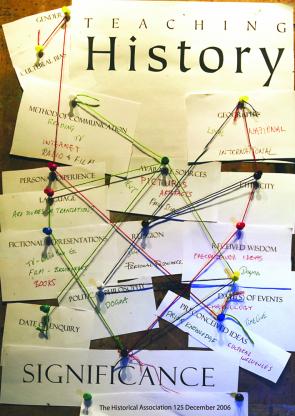I get a lot requests about education advancement for teachers and the best route to become a teacher... You'd be surprised how many people out there are in other careers - and through history want to become teachers.... I was there once (I used to be web designer...)
To help with some of these inquiries, is a guest post from Karen Shih of GreatDegree.com. She's got the scoop on different options for teachers and for those that would like to become teachers.
----------------
You’ve settled on a career in education because of your love of history or teaching or both, but now comes a more difficult, less exciting part: getting and paying for your teaching certification. Fortunately, there are many local and national options for teachers looking to save money while working towards being certified.
For students seeking to earn their certification through a bachelor’s degree program, you can look to traditional forms of aid, such as federal aid through FAFSA, or other scholarships for undergraduate students.
If you already have a bachelor’s or master’s degree in a particular field and are looking to switch to education, going through an alternative certification program could be more cost effective because it would take less time, often one to two years.
And for those with a short timeline or a current career obligation, an online teaching degree should be among your considerations. You can continue working at your current job, and it is possible to start teaching without certification (in some school districts) while you work toward your degree online.
Teaching certification is awarded by the individual state, so it’s important to check with your state’s department of education for specifics. You can look for state or county programs to subsidize your education. For example:
- Texas’ Teach for Texas provides conditional grants for aspiring teachers who agree to teach in the state for a particular amount of time
- California offers the Assumption Program of Loans for Education, which offers loan assumption for teachers going into critical areas
- New York has a Teachers of Tomorrow program that offers tuition reimbursement for teachers going into high-need areas
Additionally, for teaching history in particular, the federal government offers a Teaching American History Grant that gives between $500,000 and $1 million to school districts for training history teachers.





